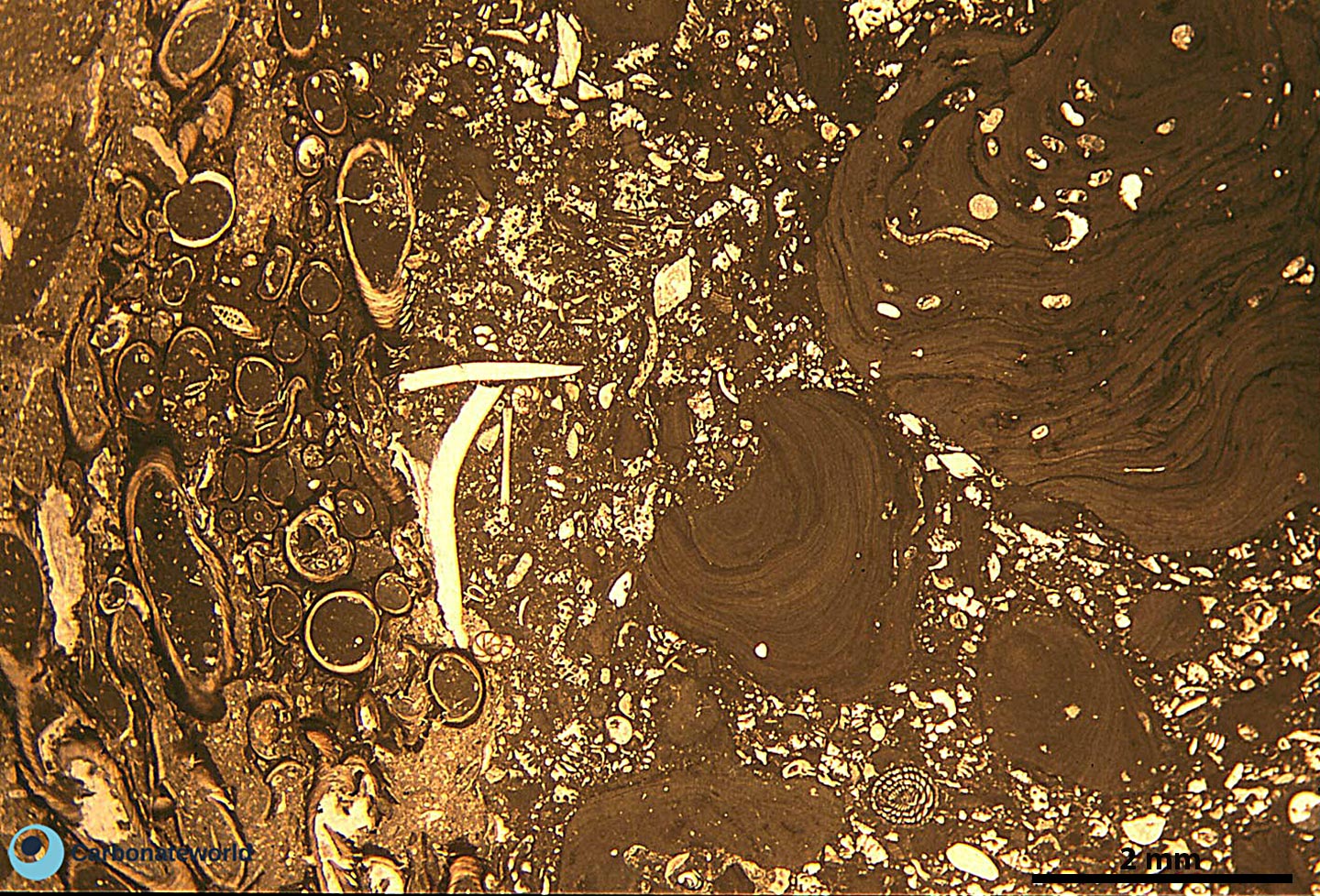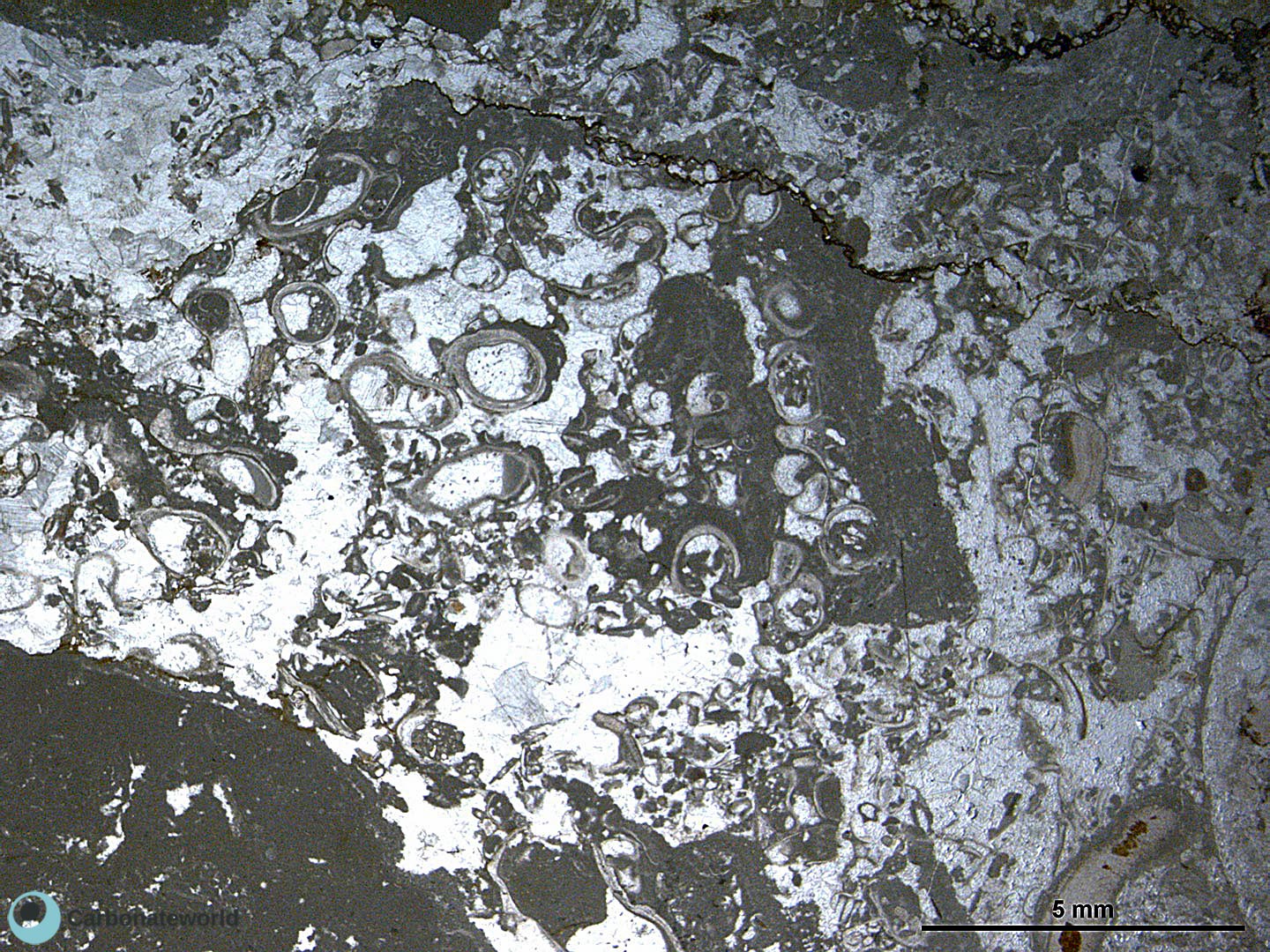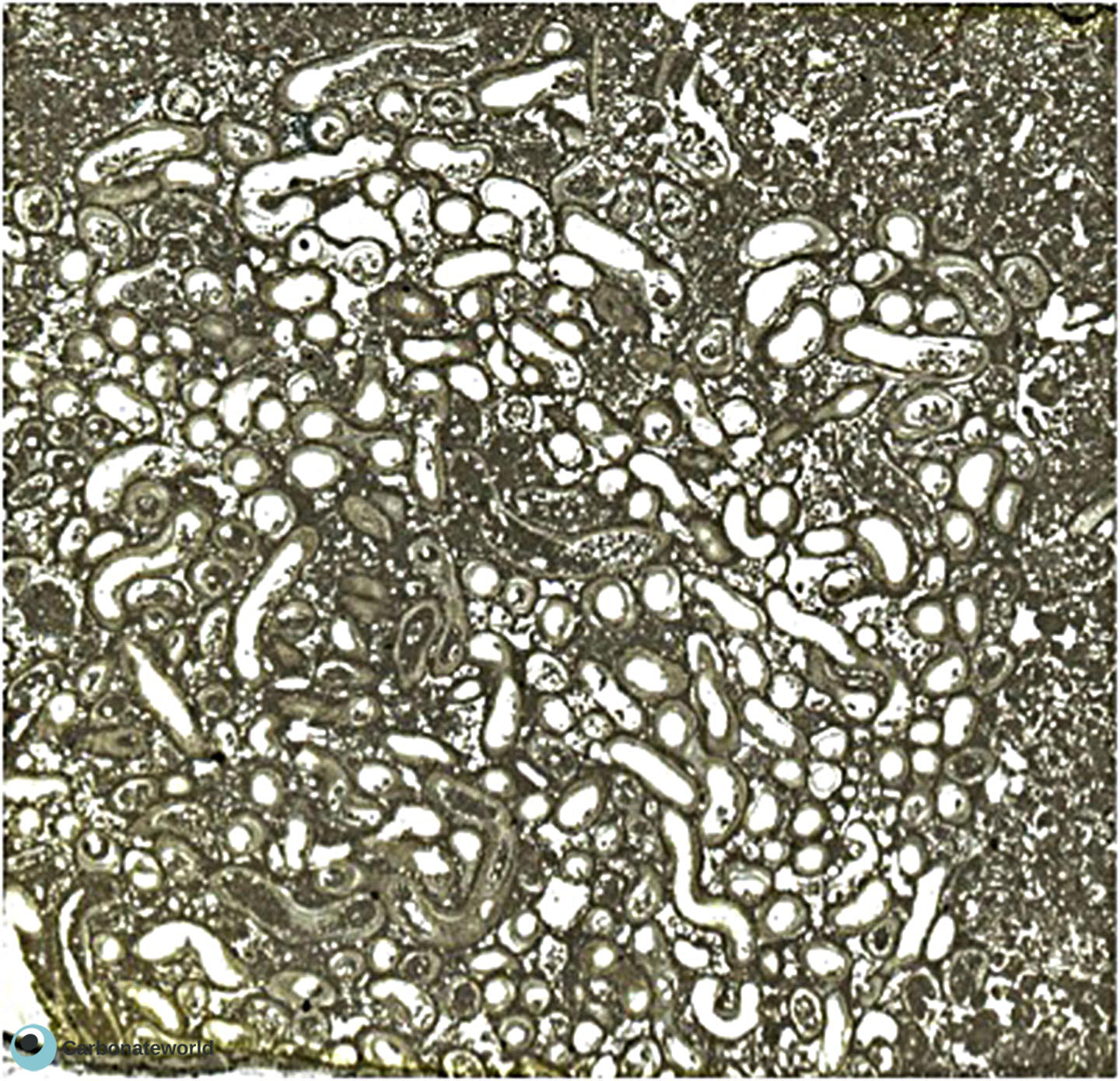Worms
1. Thartarella
Rounded micritic tube (bottom right corner) of possible worm affinity addressed as Thartarella in Carboniferous mound facies (here associated with Praedonezella algal boundstone).
Pennsylvanian, Asturias, N Spain, cf. Bahamonde et al. (2015, 2017)

HIDE INFO

SHOW INFO
2. Thartarella
Clotted peloidal micrite and fenestellid bryozoans characterize this Moscovian mound facies with Thartarella worm tube on the right side.
Pennsylvanian, Asturias, N Spain, cf. Bahamonde et al. (2015, 2017)

HIDE INFO

SHOW INFO
3. Terebella
Hexactinellid sponge associated with Terebella worm tubes in a sponge microbial mound.
Lower Jurassic, High Atlas, Morocco, cf. Merino-Tome' et al. (2012), Della Porta et al. (2013)

HIDE INFO

SHOW INFO
4. Serpulid
Bivalve packstone with skeletal fragments encrusted by serpulid worm tubes.

HIDE INFO

SHOW INFO
5. Serpulid
Bivalve packstone with serpulid worm tubes (centre right) and brachiopods.

HIDE INFO

SHOW INFO
6. Serpulid
Bryozoan and serpulid worm tubes (centre right) associated with detrital quartz sand grains.
Thin section kindly provided by T. Geel, Vrije Universiteit, Amsterdam

HIDE INFO

SHOW INFO
7. Serpulid
Same image as previous observed in crossed polarizers. Bryozoan and serpulid worm tubes (centre right) associated with detrital quartz sand grains.
Thin section kindly provided by T. Geel, Vrije Universiteit, Amsterdam

HIDE INFO

SHOW INFO
8. Serpulid
Encrustation of serpulid worms on an erosional surface on a coralline red algae oncoid packstone.
Miocene, Central Apennine, Italy

HIDE INFO

SHOW INFO
9. Serpulid
Skeletal packstone-grainstone with serpulid worms.
Mississippian, South Wales, UK

HIDE INFO

SHOW INFO
10. Serpulid
Serpulids from Upper Jurassic facies (horizontal field of view 6 mm).
Upper Jurassic, Southern England, UK

HIDE INFO

SHOW INFO

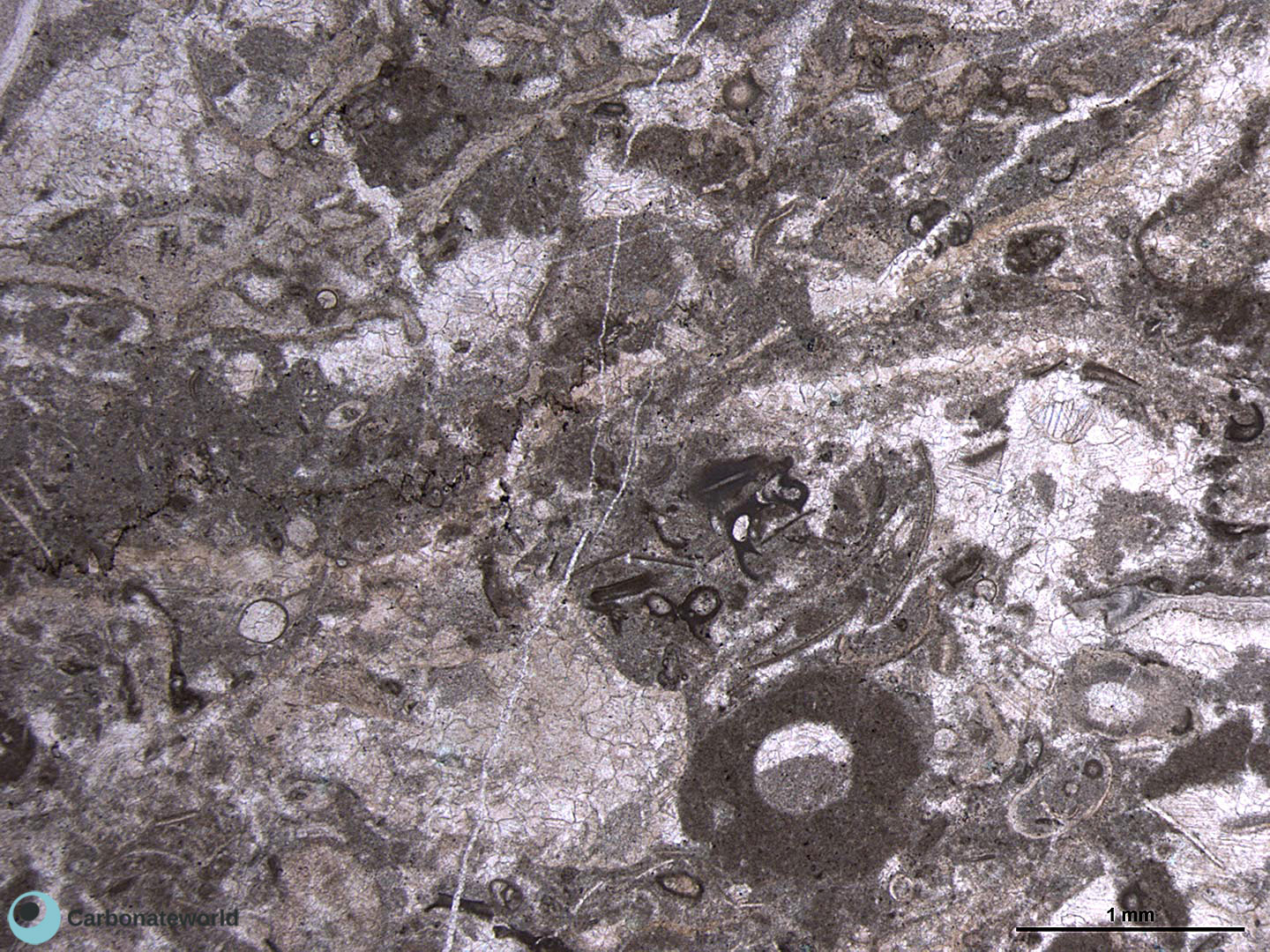

Thartarella

Praedonezella
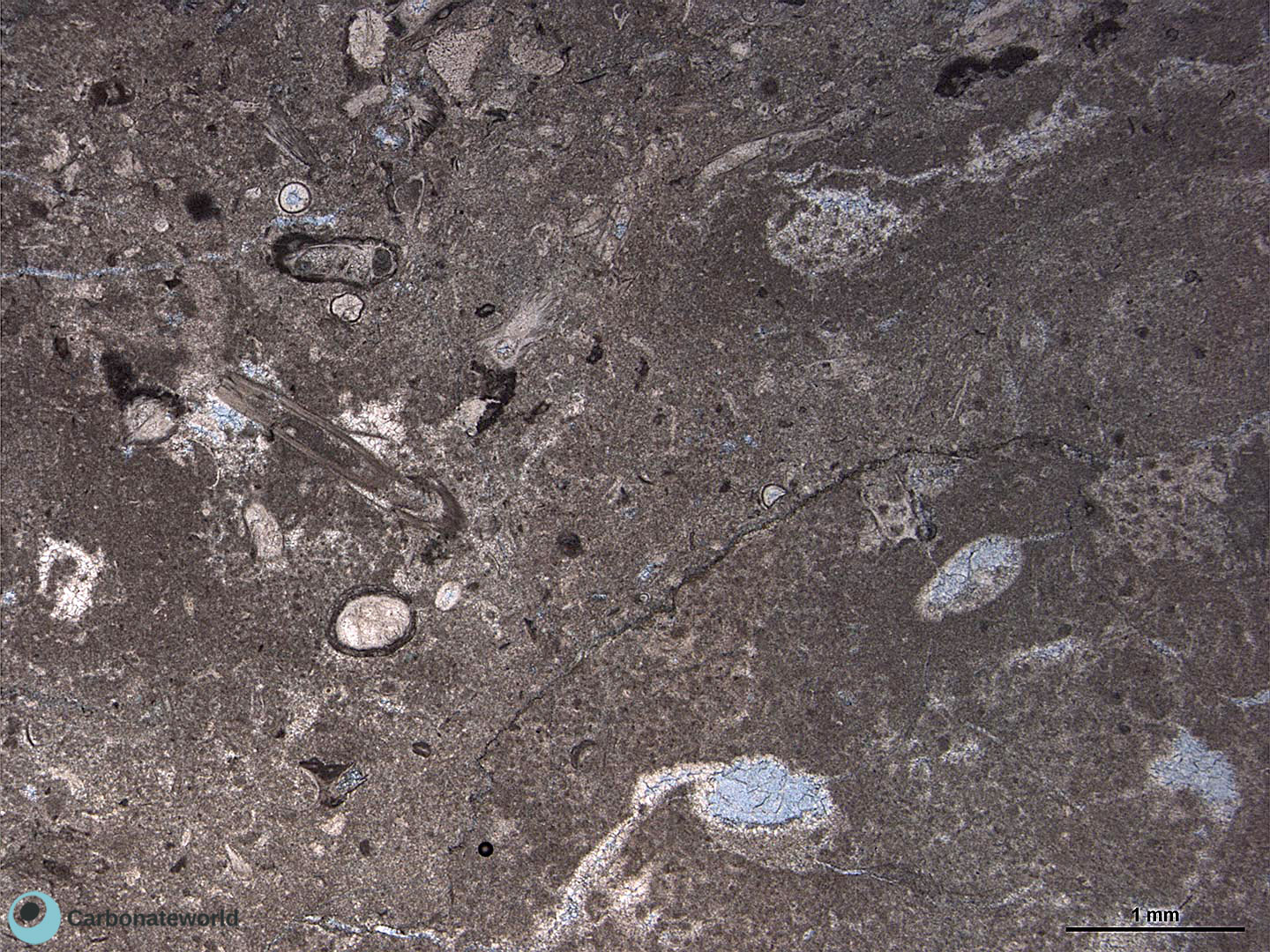

Thartarella

Fenestellid bryozoan
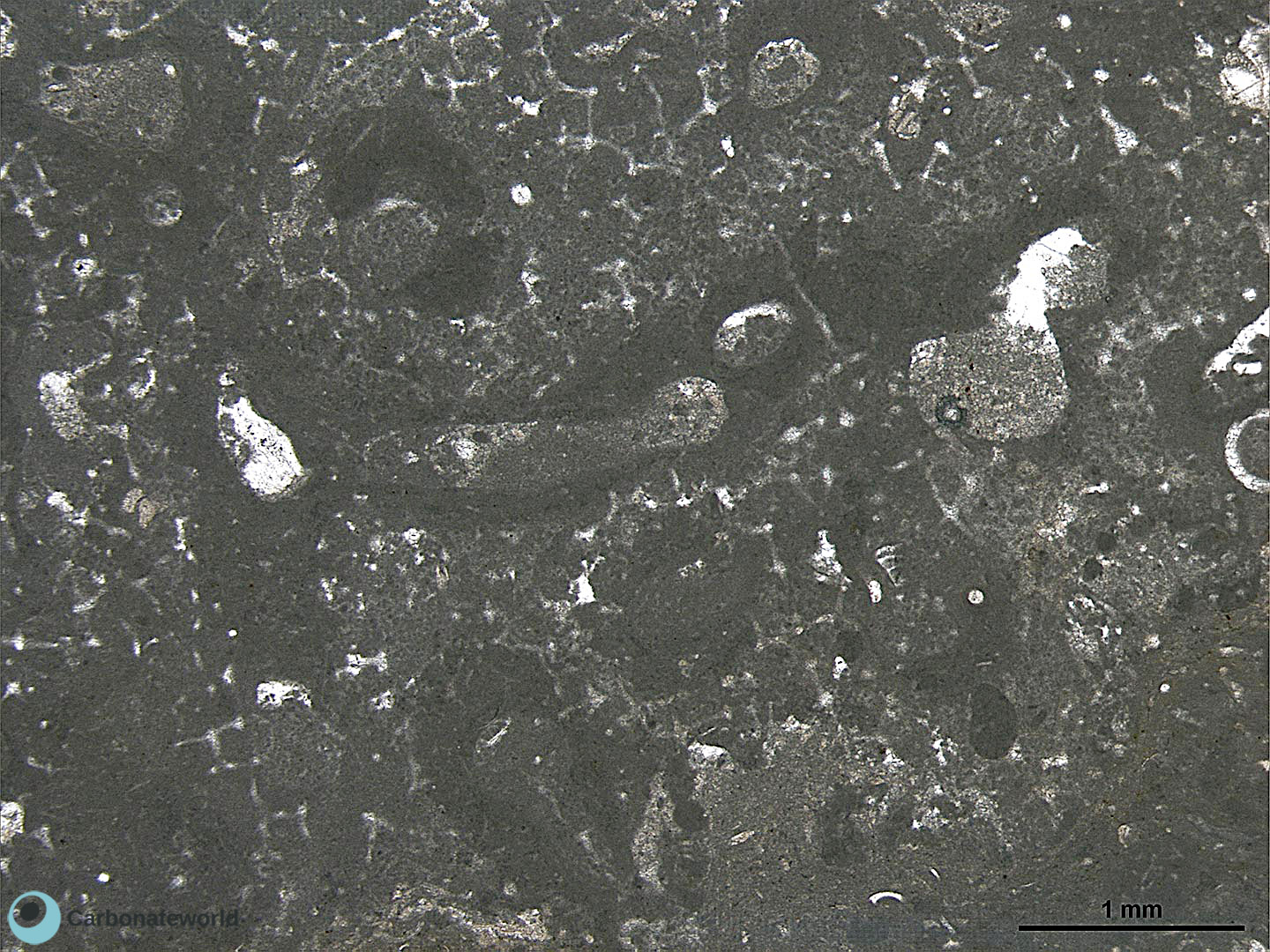

Terebella

Hexactinellid sponge
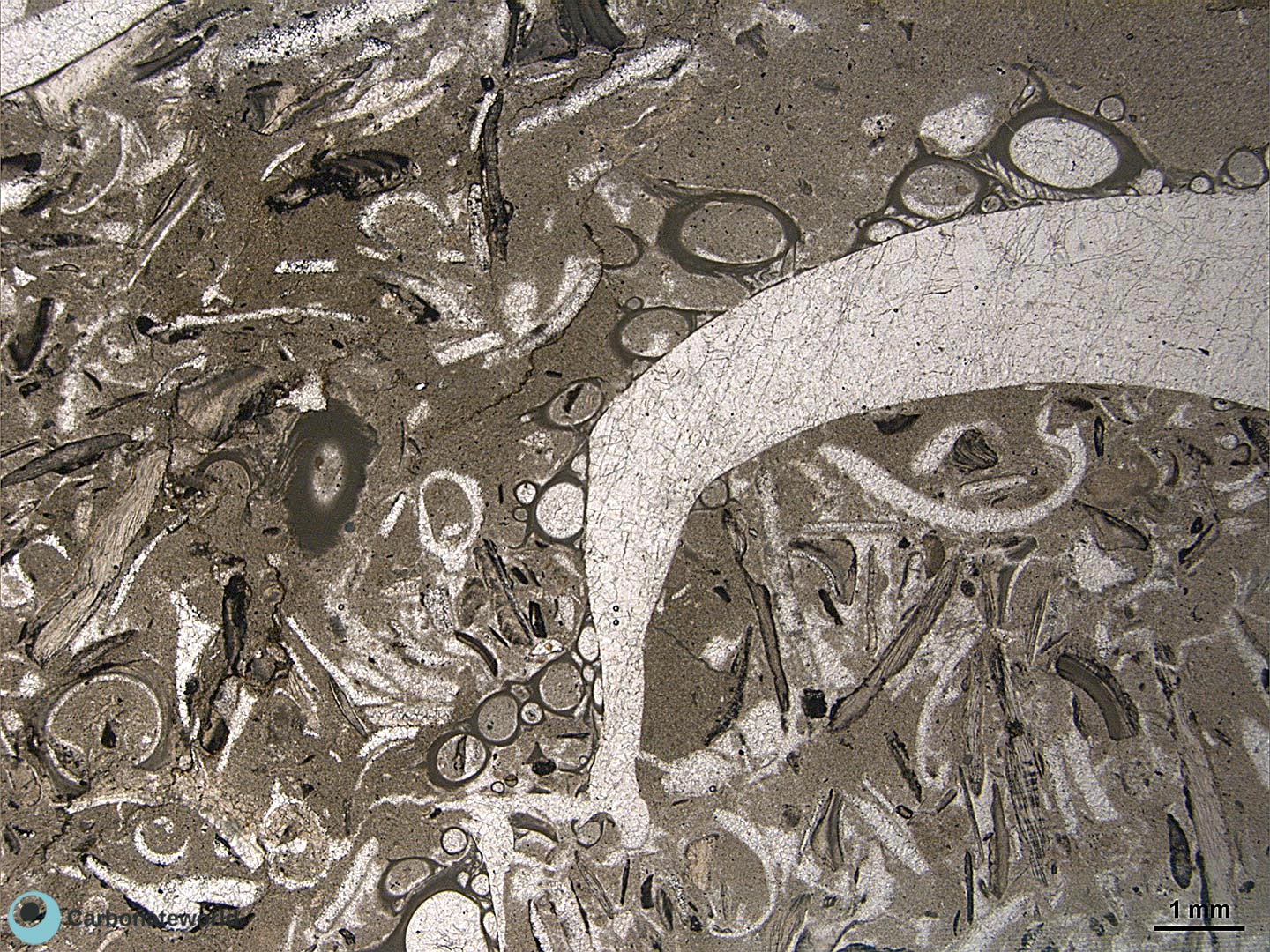

serpulid

Bivalve
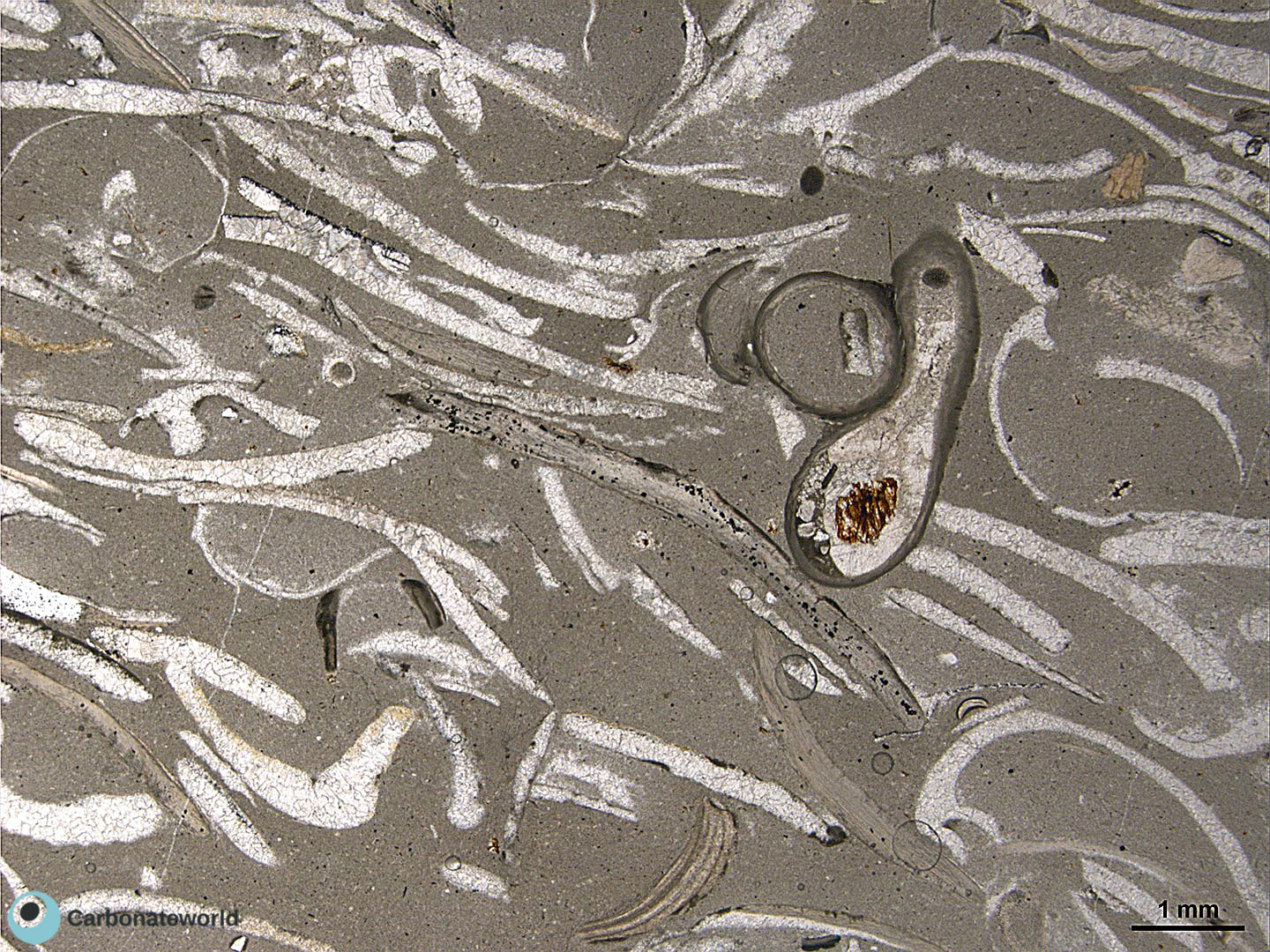

Serpulids

Bivalve
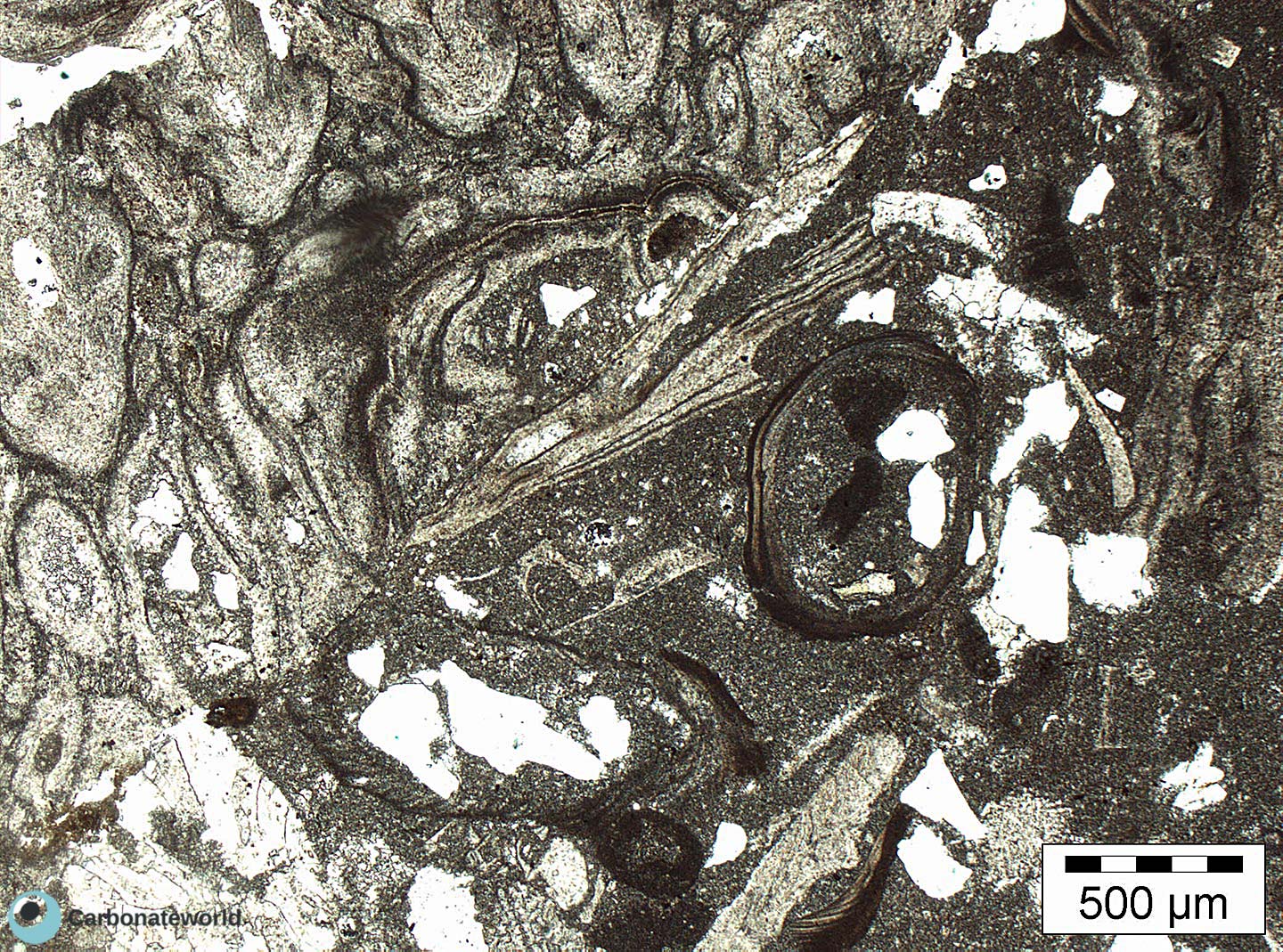

Serpulid

Quartz grain
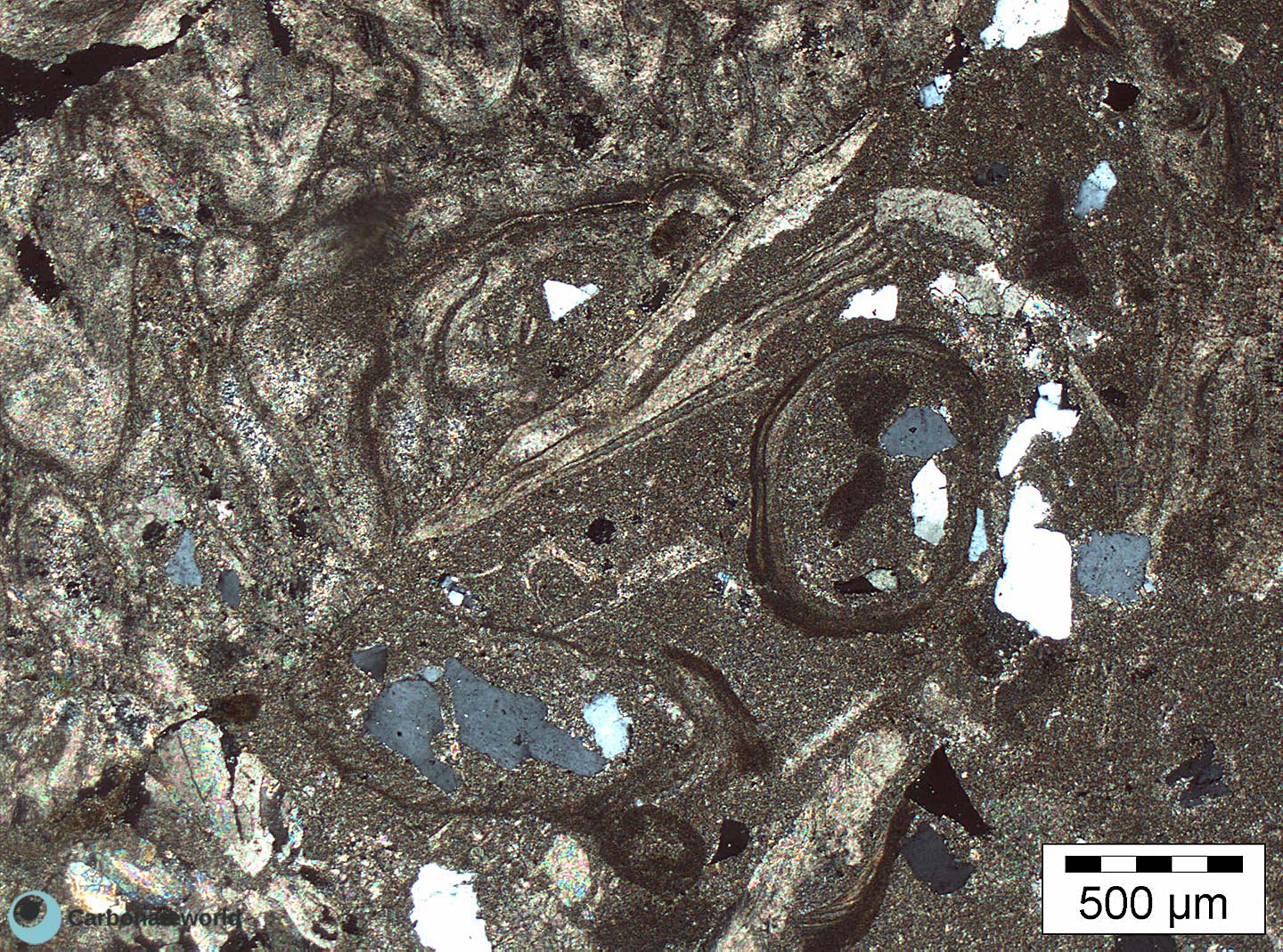

Serpulid

Quartz grain
